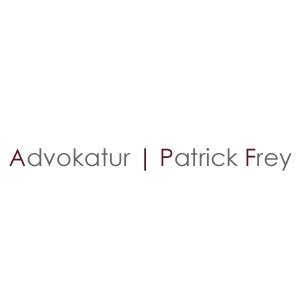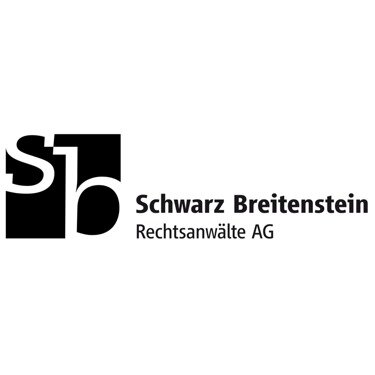Best Public-Private Partnerships (PPP) Lawyers in Switzerland
Share your needs with us, get contacted by law firms.
Free. Takes 2 min.
Or refine your search by selecting a city:
List of the best lawyers in Switzerland
About Public-Private Partnerships (PPP) Law in Switzerland
Public-Private Partnerships, commonly referred to as PPP, are collaborative agreements between government entities and private sector companies. In Switzerland, PPPs are used as a model to finance, build, and operate infrastructure or deliver public services by combining public oversight and private expertise. Projects may include construction and management of roads, hospitals, schools, energy facilities, and transport systems. The legal landscape for PPPs in Switzerland is a combination of federal and cantonal regulations, contract law, and specific sector-based rules. While not governed by a dedicated PPP law, these collaborations are shaped by existing legal frameworks that emphasize transparency, competition, and efficiency.
Why You May Need a Lawyer
Engaging in a Public-Private Partnership in Switzerland involves navigating complex legal and regulatory requirements. Here are some situations where legal assistance is especially valuable:
- Drafting, negotiating, or reviewing PPP contracts and tender documents
- Assessing risks and allocating responsibilities between public and private partners
- Ensuring compliance with procurement laws and competition regulations
- Resolving disputes arising from contractual obligations or project implementation
- Understanding tax, financing, and regulatory implications of PPP projects
- Advising on environmental, zoning, and permitting requirements
- Assisting with restructuring or termination of PPPs
- Handling cross-border PPP projects involving international stakeholders
Local Laws Overview
Public-Private Partnerships in Switzerland are shaped by multiple layers of law. Key aspects include:
- Public Procurement Law: Swiss PPP projects are subject to the Federal Act on Public Procurement (BöB) or cantonal procurement laws, ensuring transparency and equal treatment of bidders.
- Contract Law: PPP contracts are governed by the Swiss Code of Obligations, outlining the rights and duties of the parties involved.
- Sector-Specific Regulations: Infrastructure, transport, energy, and other sectors may have specific laws and guidelines impacting PPP projects.
- Competition Law: Ensures fair competition and prohibits abusive practices in PPP tendering.
- Financing and Taxation: Financial arrangements are influenced by Swiss tax law and local financing rules.
- Administrative Law: Covers project approvals, environmental regulations, and permits, often with unique cantonal variations.
Because there is no single legal code for PPPs, both parties must carefully structure agreements to comply with the legal requirements at all relevant levels.
Frequently Asked Questions
What is a Public-Private Partnership (PPP) in Switzerland?
A PPP refers to a long-term cooperation between a public authority and a private company to develop or deliver public infrastructure or services in Switzerland, usually financed and operated by the private party under specific conditions.
Are there specific PPP laws in Switzerland?
Switzerland does not have a standalone PPP law. PPP arrangements are governed by a combination of public procurement laws, contract law, and sector-specific regulations.
Which sectors commonly use PPPs in Switzerland?
PPPs are frequently used in infrastructure sectors such as transport, energy, education, healthcare, and environmental projects.
How are PPP contracts awarded?
PPP contracts must follow transparent public procurement procedures under Swiss federal or cantonal law, ensuring open competition and fair selection of private partners.
Can foreign companies participate in PPP projects in Switzerland?
Yes, foreign companies can participate, but they must comply with Swiss procurement laws and any sector-specific requirements set by federal or cantonal agencies.
What are the risks for private partners in PPP projects?
Risks may include project financing, construction delays, operational performance, regulatory changes, and revenue uncertainties. Risk allocation is typically outlined in the PPP contract.
How are disputes in PPP projects resolved?
Disputes are usually addressed first through negotiation or mediation, but can be escalated to Swiss courts or arbitration as stipulated in the PPP agreement.
How long do PPP contracts last?
PPP agreements typically last for several years to several decades, depending on the nature of the project, financing model, and the agreement between the parties.
What is the public authority's role in a PPP?
The public authority oversees compliance with public interest goals, supervises contract performance, and may retain ownership or regulatory powers over the infrastructure or service.
Do PPP projects require special government approval?
Most PPP projects must obtain various regulatory approvals, environmental permits, and potentially parliamentary approval, depending on the size and scope of the project.
Additional Resources
If you need more information or support regarding Public-Private Partnerships in Switzerland, consider contacting the following resources:
- State Secretariat for Economic Affairs (SECO): Provides guidelines and advice on investment and procurement procedures.
- Swiss Association for Public Procurement: Offers resources on public procurement practices, including PPPs.
- Swiss Federal Railways and Swiss Federal Roads Office: For sector-specific PPP frameworks in transport projects.
- Cantonal government offices: Each canton has dedicated bodies for infrastructure development and public procurement.
- Swiss Bar Association: For finding lawyers experienced in PPP and public contracts.
Next Steps
If you are considering engaging in a Public-Private Partnership in Switzerland or are facing legal questions related to an existing PPP project, here is how you can proceed:
- Gather all relevant documents and information about your project or legal questions.
- Identify whether your issue relates to contract drafting, procurement law, regulatory compliance, or dispute resolution.
- Contact a qualified Swiss lawyer with expertise in PPP projects and public procurement law.
- Consult cantonal or federal authorities if your project involves specific regional or federal legal requirements.
- Utilize the additional resources listed above for further guidance and support.
Taking early legal advice is crucial for structuring your PPP efficiently and ensuring it meets all Swiss legal obligations.
Lawzana helps you find the best lawyers and law firms in Switzerland through a curated and pre-screened list of qualified legal professionals. Our platform offers rankings and detailed profiles of attorneys and law firms, allowing you to compare based on practice areas, including Public-Private Partnerships (PPP), experience, and client feedback.
Each profile includes a description of the firm's areas of practice, client reviews, team members and partners, year of establishment, spoken languages, office locations, contact information, social media presence, and any published articles or resources. Most firms on our platform speak English and are experienced in both local and international legal matters.
Get a quote from top-rated law firms in Switzerland — quickly, securely, and without unnecessary hassle.
Disclaimer:
The information provided on this page is for general informational purposes only and does not constitute legal advice. While we strive to ensure the accuracy and relevance of the content, legal information may change over time, and interpretations of the law can vary. You should always consult with a qualified legal professional for advice specific to your situation.
We disclaim all liability for actions taken or not taken based on the content of this page. If you believe any information is incorrect or outdated, please contact us, and we will review and update it where appropriate.
Browse public-private partnerships (ppp) law firms by city in Switzerland
Refine your search by selecting a city.
















